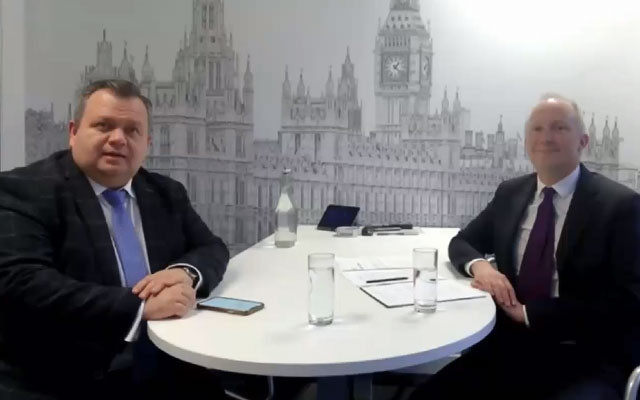
10 ethical rules from the President of the Bar Council of England and Wales

Oleksandr Chernykh, the UNBA representative in the United Kingdom, met with Samuel Townend, the President of the Bar Council of England and Wales, in the last week of his term in office, to record an interview about the standards of the profession, the role of lawyers in justice, and the participation of self-government in protecting the interests of the community.
The Bar Council of England and Wales is a representative body for 18 thousand barristers. The main task of the Council is to protect both the interests of the bar community and the public interest in ensuring the rule of law. The Chairman of the Bar Council has supervisory functions, and the profession is regulated by the Bar Standards Board, which develops the Code of Ethics for lawyers.
S. Townend spoke in particular about the regulation of lawyers' behavior. «We have 10 main responsibilities, - he said. - And under each basic duty there are explanations that help you understand how you should behave».
So, the key ethical rules are:
1) to fulfill their duties to the court in the administration of justice (when a barrister is in court, they are considered an employee of the court);
2) act in the best interests of each client;
3) work honestly and transparently;
4) maintain independence. This will help to avoid conflicts of interest, among other things;
5) behave with dignity. The advocate shall not behave in a manner that may diminish the trust that the public places in the advocate and the profession as a whole;
6) to keep confidential the information provided by the client;
7) to perform his or her work competently;
8) to prevent any manifestations of discrimination;
9) be open and cooperate with the Bar Standards Board;
10) take reasonable measures for the competent management of their practice and compliance with legal and regulatory obligations.
The President of the Council also gave an example of how these standards are implemented in specific situations. For example, decent behavior on social media implies that it is inappropriate to ridicule the judiciary, which is properly performing its functions. You cannot personally attack a judge through social media, the media, or even incite violence or other things against a judge or your opponent through the use of social media.
«We regularly review these guidelines, but essentially it comes down to common sense that you should not behave on social media in the same way that you would behave in person or on the phone. And behavior that falls below the appropriate standard in a face-to-face meeting may well fall below the appropriate standard on social media», - explained S. Townend.
© 2026 Unba.org.ua Всі права захищені
"Національна Асоціація Адвокатів України". Передрук та інше використання матеріалів, що розміщені на даному веб-сайті дозволяється за умови посилання на джерело. Інтернет-видання та засоби масової інформації можуть використовувати матеріали сайту, розміщувати відео з офіційного веб-сайту Національної Асоціації Адвокатів України на власних веб-сторінках, за умови гіперпосилання на офіційний веб-сайт Національної Асоціації Адвокатів України. Заборонено передрук та використання матеріалів, у яких міститься посилання на інші інтернет-видання та засоби масової інформації. Матеріали позначені міткою "Реклама", публікуються на правах реклами.